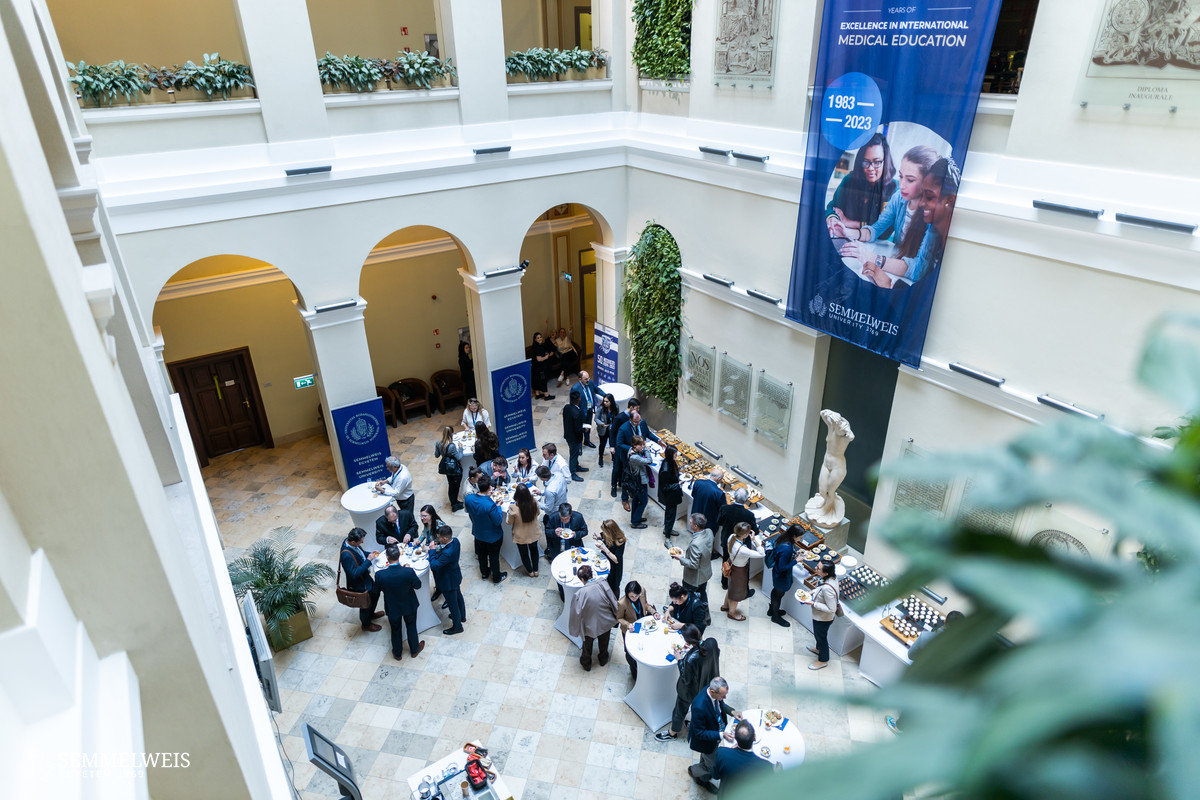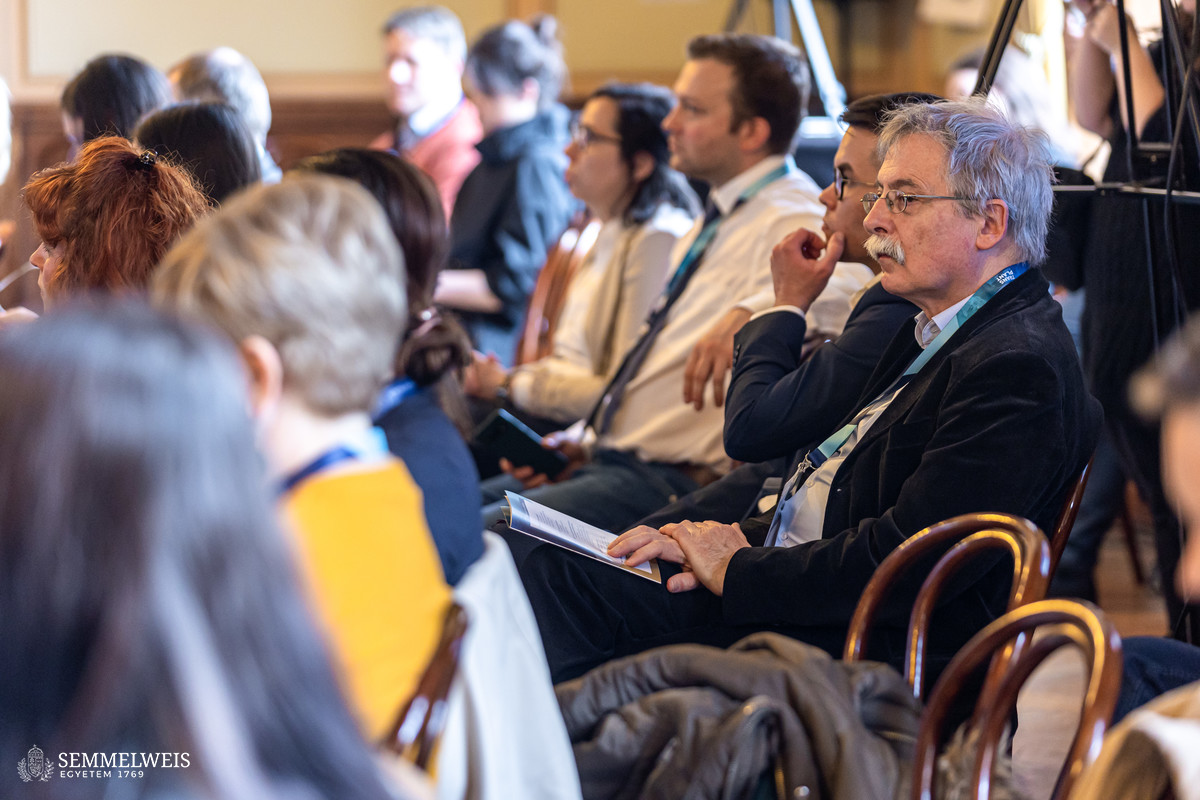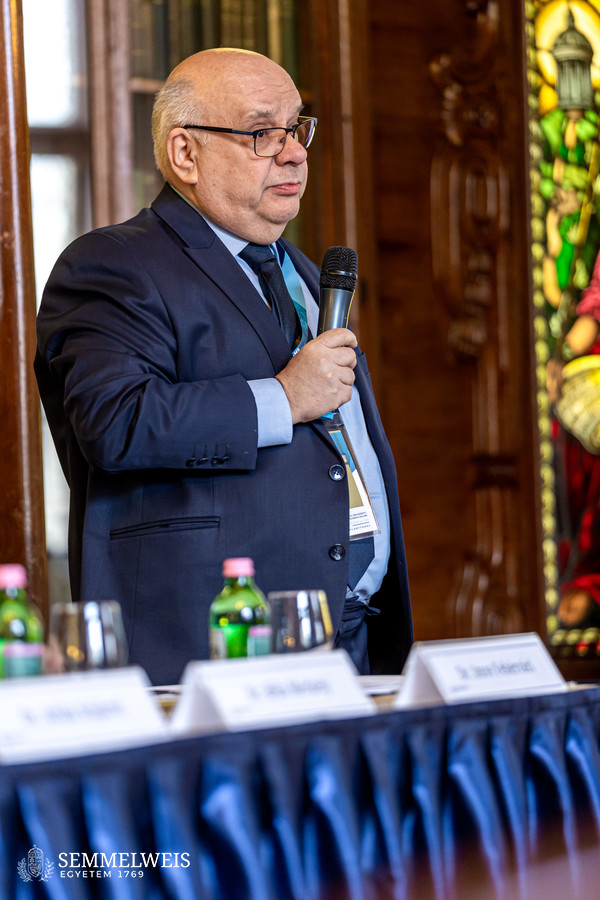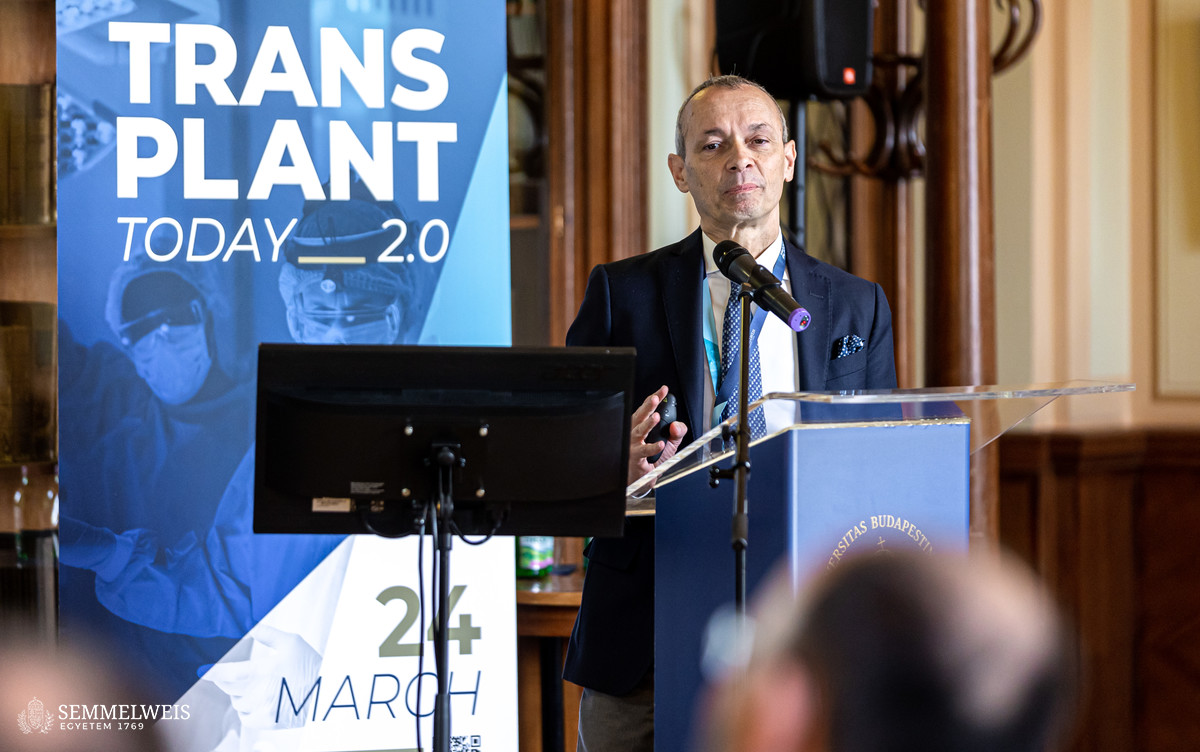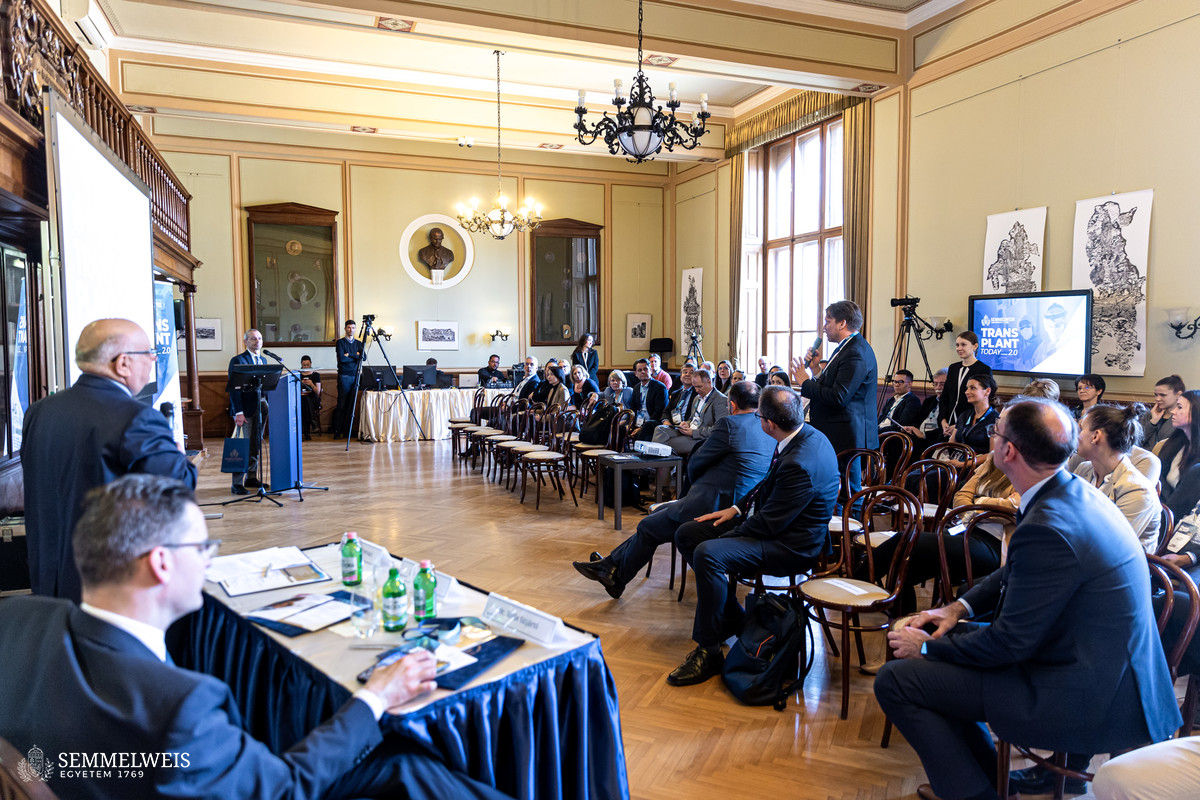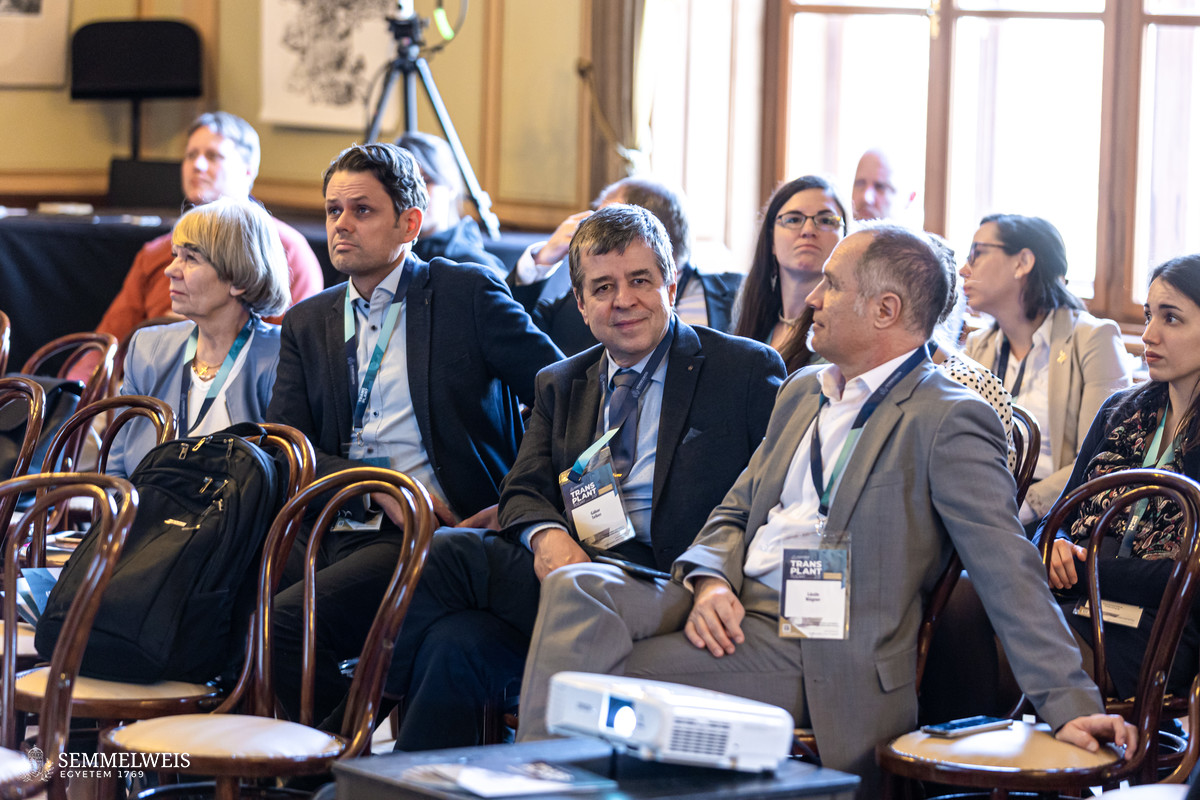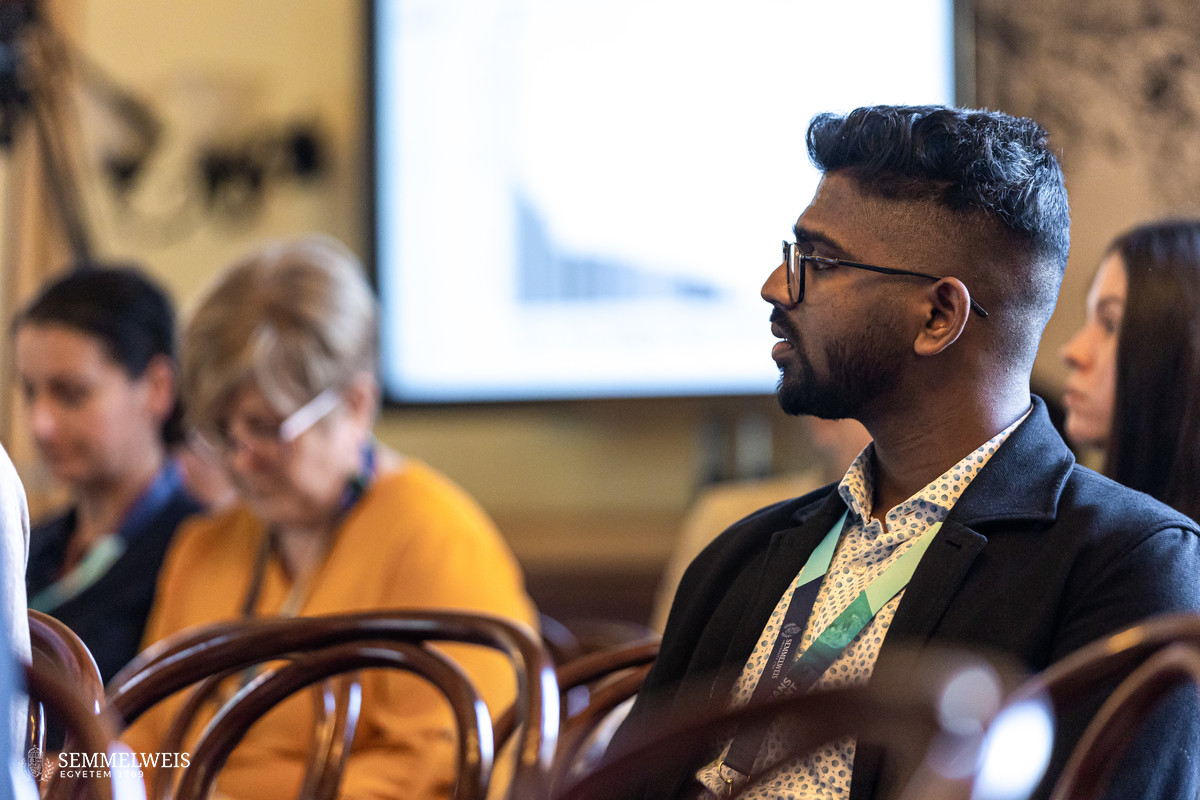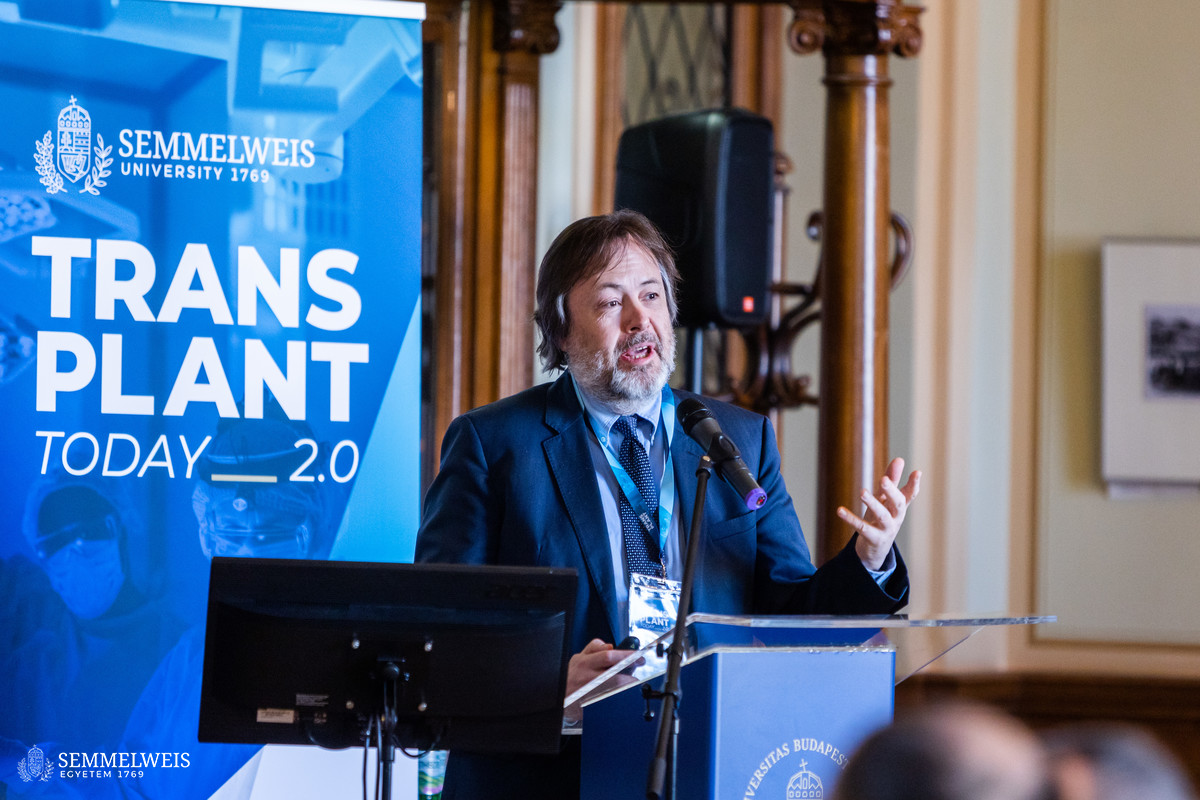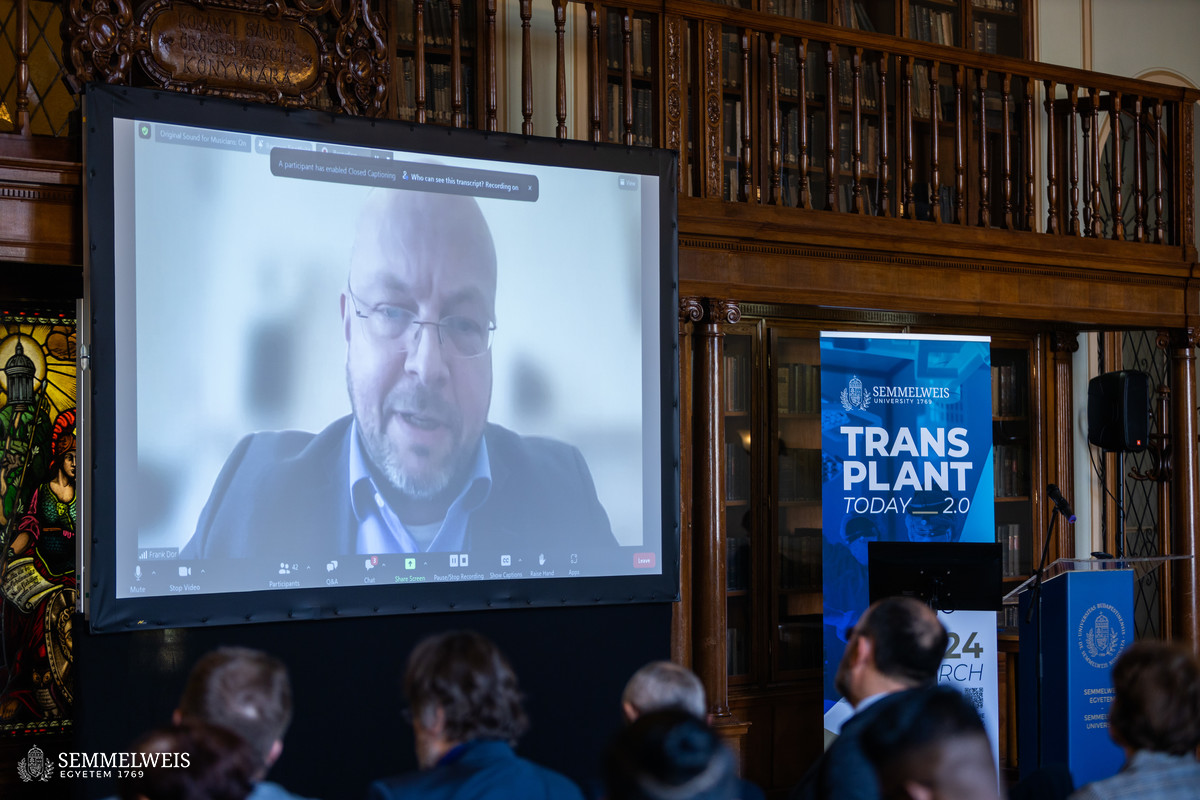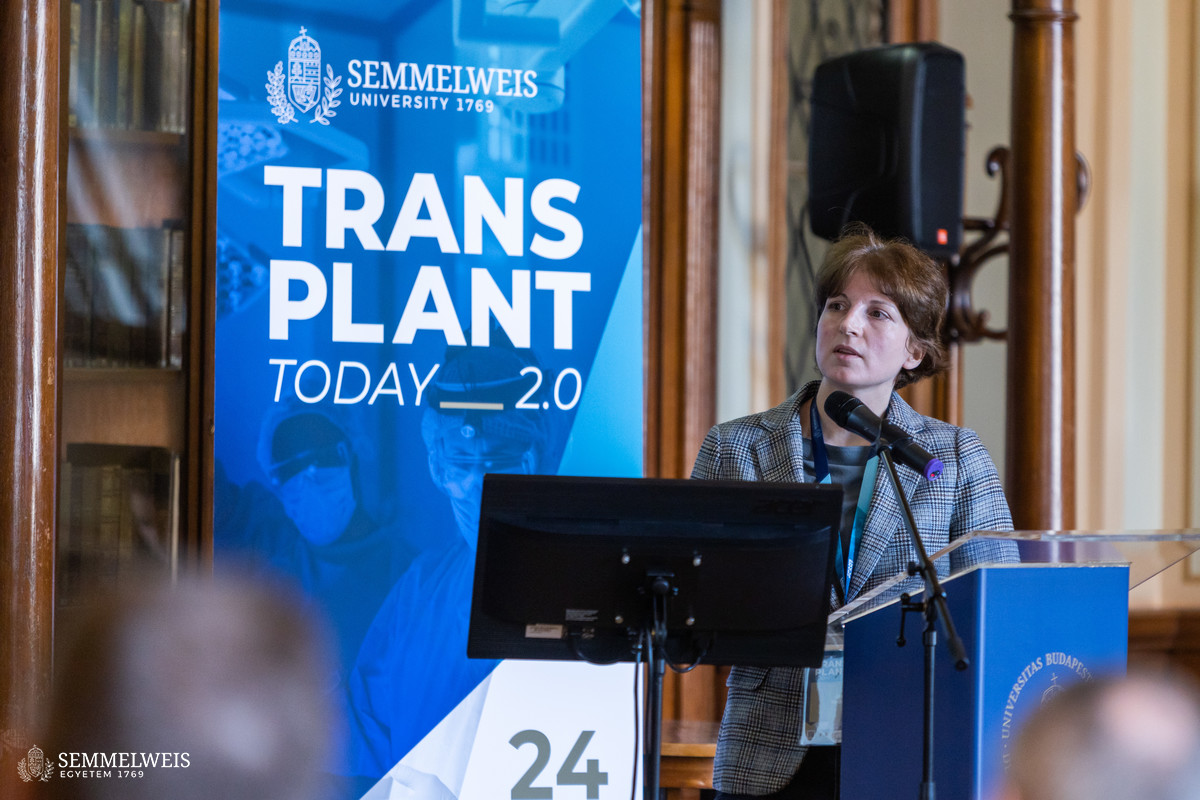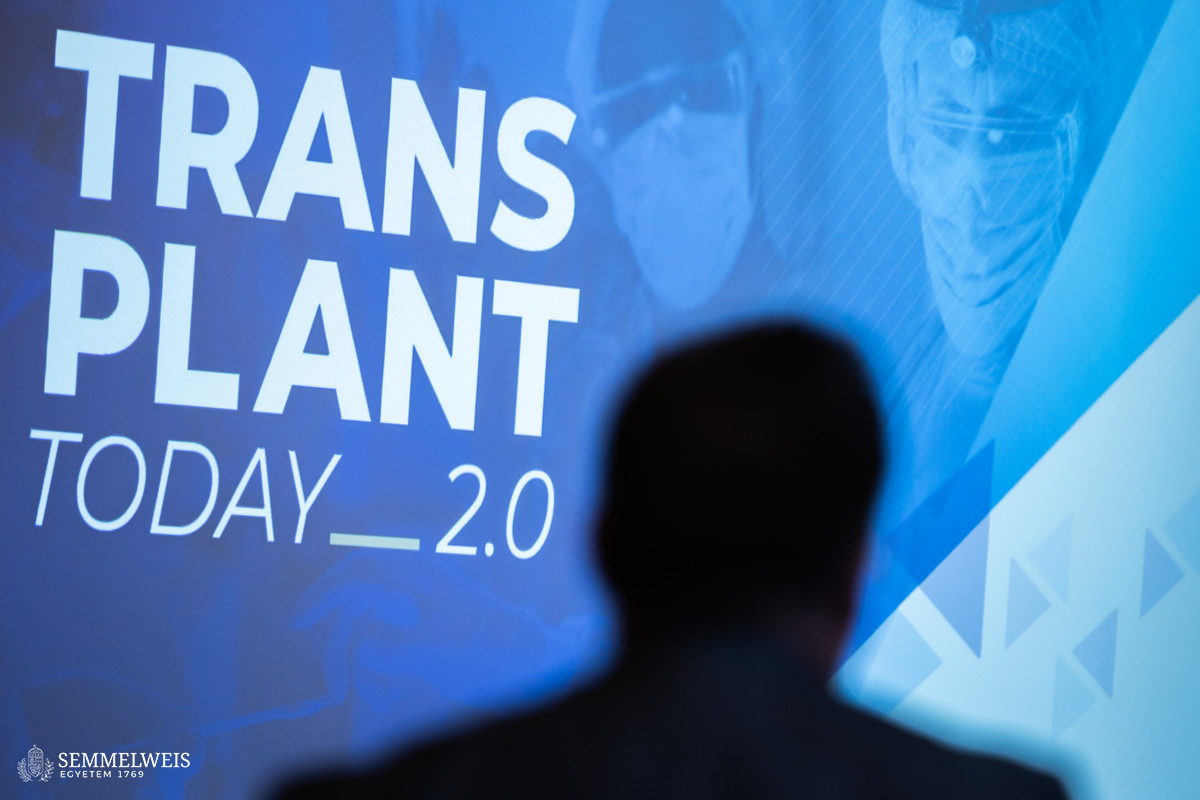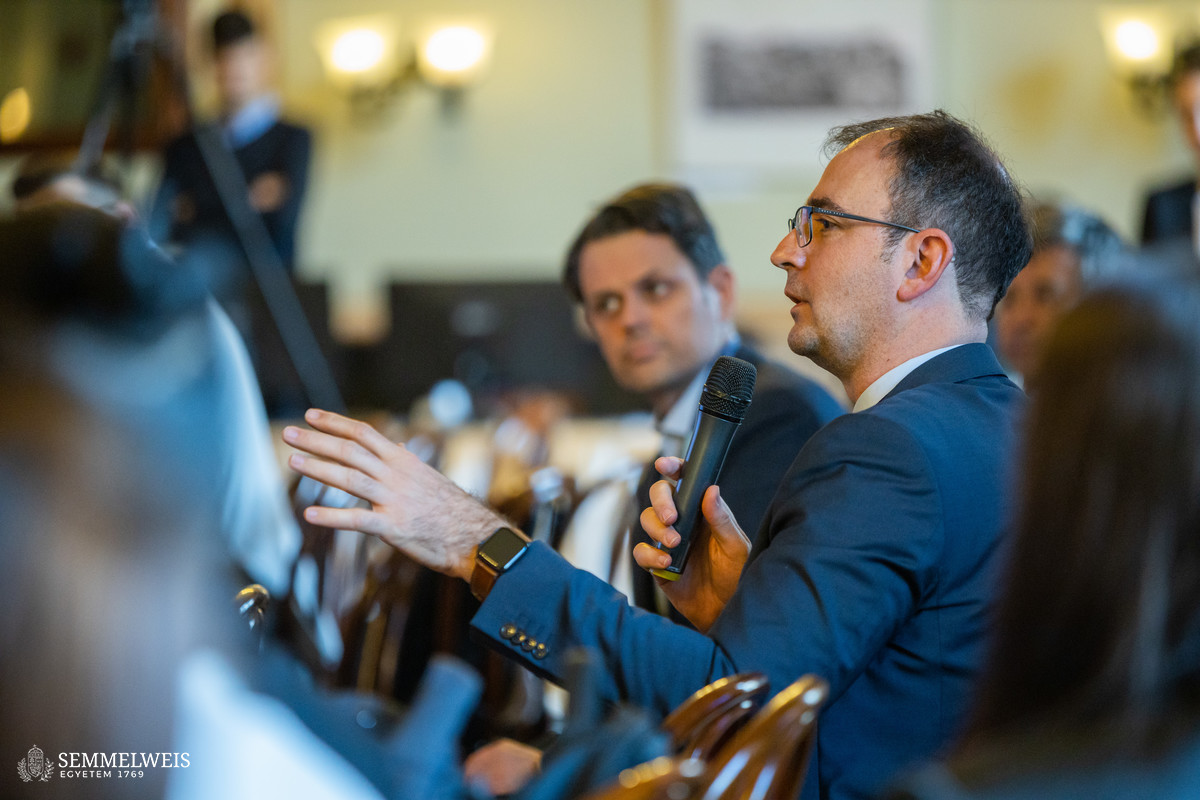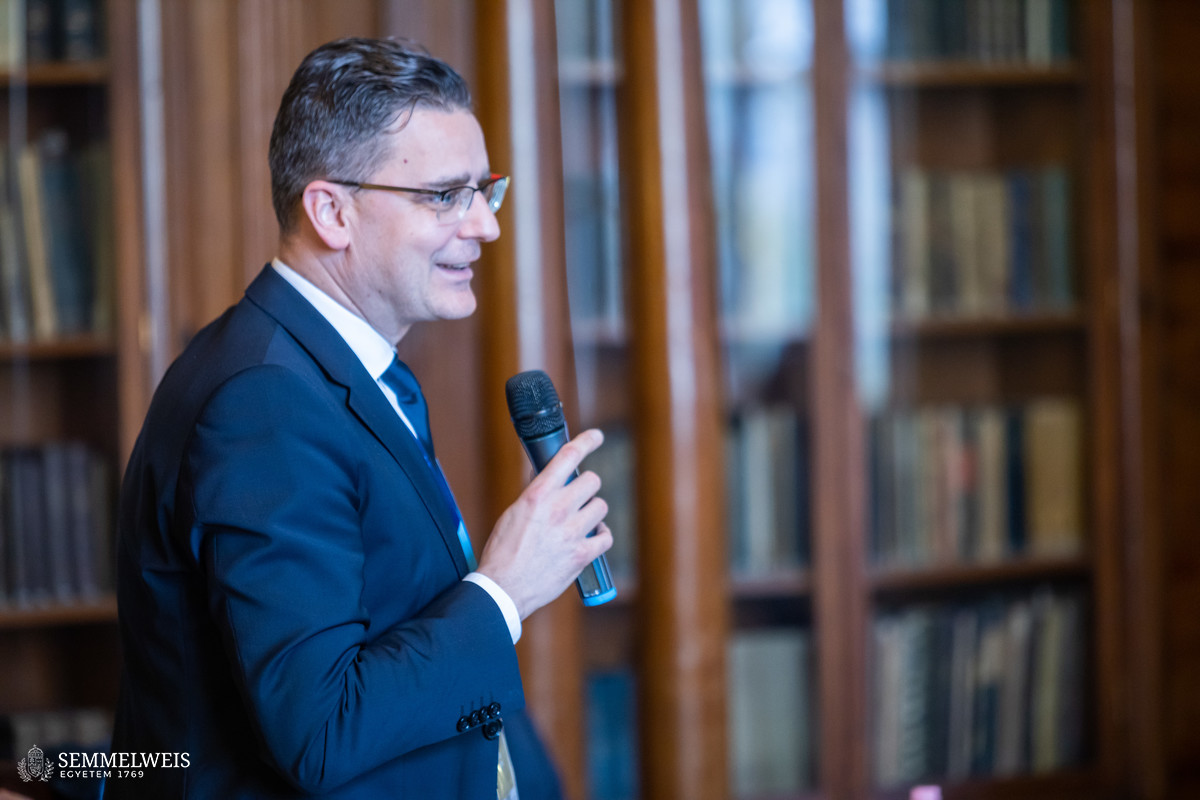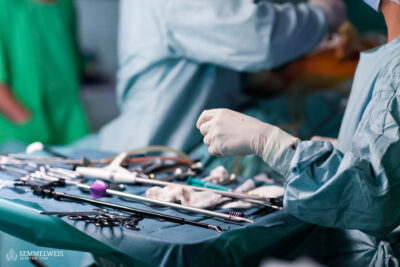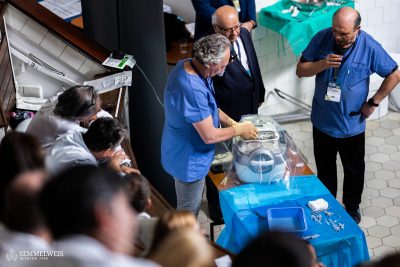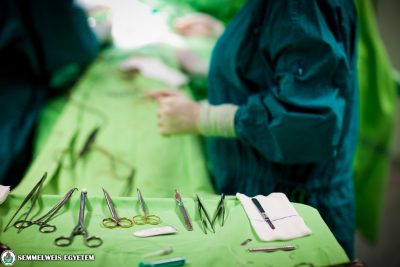This year, for the second time, the Department of Surgery, Transplantation and Gastroenterology (STéG) hosted the conference at the Semmelweis Salon. Once again, the event was attended and lectured by some of Europe’s most prominent transplant specialists.
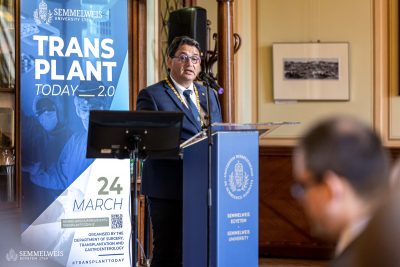 The day-long international symposium was opened by Rector Dr. Béla Merkely. He reminded that the first kidney transplantation program of Hungary started in 1973, and it was performed at Semmelweis university, as well as the first heart transplantation, which was performed in 1992 at the Heart and Vascular Centre in Városmajor.
The day-long international symposium was opened by Rector Dr. Béla Merkely. He reminded that the first kidney transplantation program of Hungary started in 1973, and it was performed at Semmelweis university, as well as the first heart transplantation, which was performed in 1992 at the Heart and Vascular Centre in Városmajor.
In 1994, the Department of Surgery and Transplantation opened in Budapest, and the following year the liver transplantation program was launched, which has been operating successfully ever since. At the height of the coronavirus epidemic, this institution performed its 500th living donor kidney transplant. In 2021, the Department of Transplantation and Surgery was merged into the 1st Department of Surgery and Interventional Gastroenterology. This created the Department of Surgery, Transplantation and Gastroenterology (STéG), one of the largest inpatient care facilities at the university. It is thanks to this clinic that Semmelweis University is still a leader in organ transplantation in Hungary and is one of the major Eurotransplant countries, the Rector pointed out.
The purpose and mission of Transplant Today reaches far beyond the walls of Semmelweis University. It was organized with the intention of creating an opportunity for professionals from all Hungarian medical schools to enhance their professional development, exchange ideas and expand their national and international network of contacts
– Dr. Béla Merkely concluded.
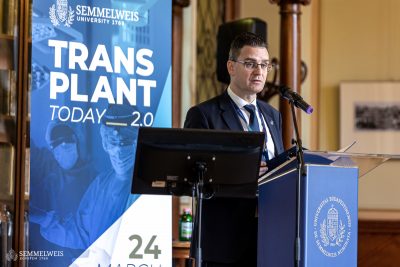 According to Dr. Attila Szijártó, Director of the Department of Surgery, Transplantation and Gastroenterology, Transplant Today addresses the most current issues of the field, especially the changes in indications and challenges those involved have to face in the future. This year’s event is the second international symposium organized by Semmelweis, aimed at a slightly narrower professional audience: the presentations are primarily designed to dive into exciting and evolving areas, for example the transplantation of children, or the issue of AB0 incompatible transplants.
According to Dr. Attila Szijártó, Director of the Department of Surgery, Transplantation and Gastroenterology, Transplant Today addresses the most current issues of the field, especially the changes in indications and challenges those involved have to face in the future. This year’s event is the second international symposium organized by Semmelweis, aimed at a slightly narrower professional audience: the presentations are primarily designed to dive into exciting and evolving areas, for example the transplantation of children, or the issue of AB0 incompatible transplants.
Fortunately, national transplantation activity slowly approaches pre-epidemic levels, and donor offers are increasing for all organs. Overall, 40 live donor kidney transplants were performed at the university last year; in addition to that, 94 cadaver kidney transplants, 69 liver transplants and 2 pancreas transplants were completed in 2022. Under the umbrealla of Semmelweis, 40 heart and 12 lung transplants were accomplished as well
– he said.
This was followed by a presentation by Sándor Mihály, Director of Transplantation at the Hungarian National Blood Transfusion Service, in which he presented the results of a research funded by the Council of Europe. The study investigated the reasons for refusing cadaver donation in Council of Europe member states. One of the interesting results of this research was the generalization of the presumed consent in countries that previously used donor cards.
The presentation by Professor Umberto Cillo at the University of Padua was one of the most anticipated, and brought a candid and open dialogue between the participants. Among other things, the expert in liver transplantation and hepatobiliary surgery addressed the changing indications for liver transplantation, namely that recipient selection based on the biological characteristics of tumours is increasingly replacing the tumour restriction criteria that have been commonly used up to now.
Fabio Vistoli, Professor of Surgery at the University of Pisa, reviewed the progress of pancreas transplantation in Italy. Thoracic organ transplantation was represented by professors from Semmelweis University and its partner university, the Medical University of Vienna as well as Allgemeines Krankenhaus (AKH). Heart transplantation was reviewed by Professor Andreas Zuckermann, a long-time supporter of the Hungarian heart program at the Medical University of Vienna, and Konrad Hötzeneker gave a presentation on lung transplantation online, from India. Both speakers stressed the importance of mechanical perfusion, now commonly used for thoracic organs. This not only increases the amount of organs that can be utilized, but also makes the transplantation itself a more predictable operation. Unfortunately, this option is not yet available for transplantation in Hungary, but its introduction is an increasingly urgent task and goal.
The lunch break was filled with informal discussion with the speakers, followed by a panel of experts in the field of kidney transplantation, the most widely performed organ transplantation. Nephrologist Rainier Oberbauer took a break from his home conference to visit Semmelweis University and talk about the increasing use of blood type incompatible transplants. This was accompanied by an online discussion by transplant surgeon Frank Dor from London. The last lecture of the scientific program was a presentation by Uts Herden. As a surgeon, he gave an overview of transplants performed on Hungarian children in Hamburg, which are a necessary and effective complement to domestic programs.
Dr. Imre Fehérvári (Department of Surgery, Transplantation and Gastroenterology);
Directorate of Communication
Photo: Bálint Barta, Attila Kovács – Semmelweis University

